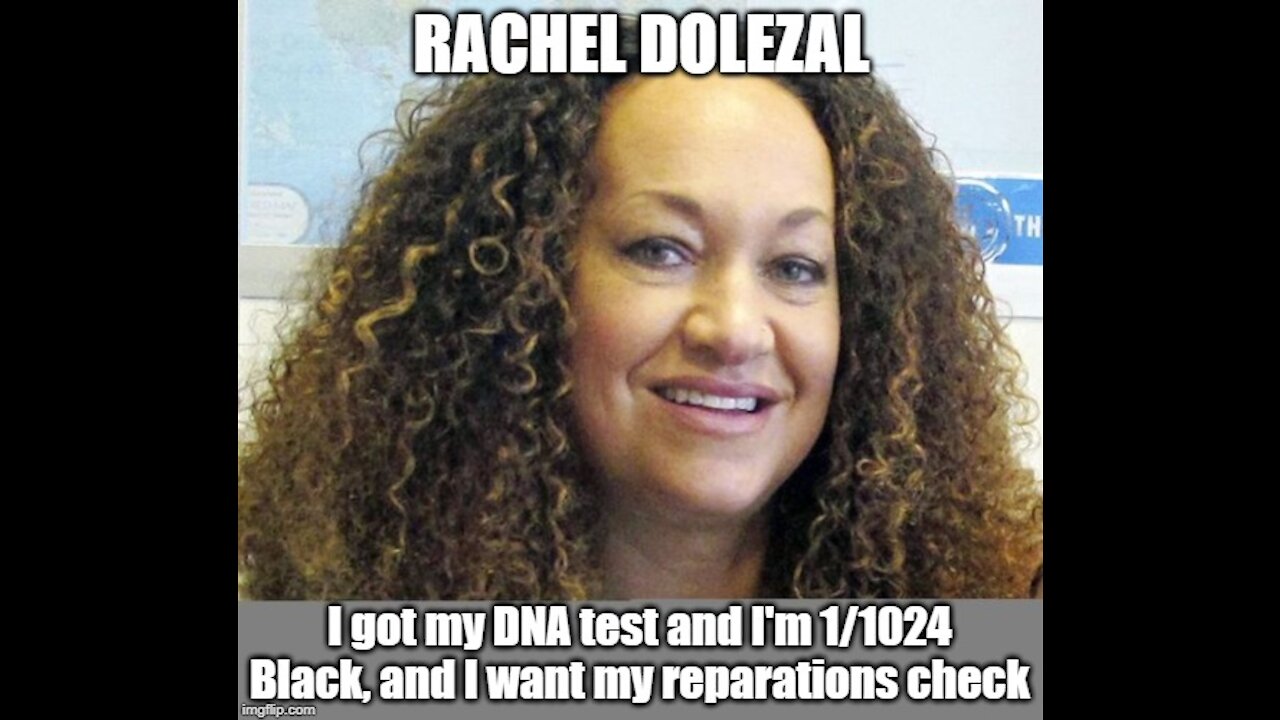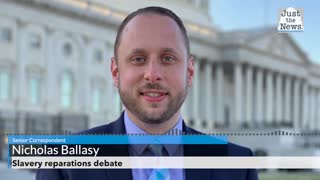Premium Only Content

Slavery ended 130 years ago, NFL legend Herschel Walker, black Americans shouldn't get reparations
#HerschelWalker #Reparations #Grift #Scam
NFL legend Herschel Walker argued against reparations for black Americans at a congressional hearing, saying: 'Slavery ended over 130 years ago.'
Walker made his case to members of the Judiciary subcommittee on the Constitution, Civil Rights, and Civil Liberties who met via Zoom on Wednesday to discuss House Resolution 40, which aims to 'establish a commission to study and consider a national apology and proposal for reparations for the institution of slavery'.
The athlete, who played for the University of Georgia and won the Heisman Trophy in 1982 before going pro, asserted that compensating black Americans for the lasting impacts of slavery would cause more harm than good.
'We use black power to create white guilt,' Walker, a longtime friend of former president Donald Trump, told the subcommittee. 'My approach is biblical...how can I ask my Heavenly Father to forgive me if I can't forgive my brother?
'America is the greatest country in the world for me, a melting pot of a lot of great races, a lot of great minds that have come together with different ideas to make Americans the greatest country on Earth.'
Walker went on to rant about the impracticality of reparations, given that slavery was abolished so long ago.
'How many African-Americans was alive today that was in slavery? Which is none,' he said.
'So I go to some of the older people for experience and I remember my mom mentioning, how could we pay for your great, great, great grandfather being burned to death? Or how could we pay for your great, great uncle being hung?'
'I understand that those pictures are horrible,' Walker said, referencing photos of a beaten slave and lynched black Americans that HR 40's sponsor, Rep Sheila Jackson Lee (D - Texas), presented at the start of the hearing.
'But right now, I think the fact finding is going to be very difficult to go back over history when history is not even taught in school on what we're trying to in fact find.'
He continued: 'Where would the money from from? Does it come from all the other races except the black taxpayers?
'Who is black? What percentage of black must you be to receive reparations? Do you go to 23andMe or a DNA test to determine the percentage of blackness?
'Reparations teach separation,' Walker concluded. 'Slavery ended over 130 years ago. How can a father ask his son to spend prison time for a crime he committed?
'I feel it continues to let us know we're still African American, rather than just American. Reparation or atonement is outside the teaching of Jesus Christ.'
Walker was joined in the opposition by talk show host Larry Elder, who argued that systemic racism is not the main problem.
'Obviously there are black people who are poor, the extent of which the poverty is a result of slavery and Jim Crow is tenuous at best,' Elder said. 'The larger factor behind black poverty is the absence of fathers in the home.'
Elder also called reparations for slavery the 'greatest generational transfers of wealth back and forth, because virtually every people on the face of the earth was involved in slavery.'
Rep Burgess Owens, a freshman Republican from Utah, used the venue to place blame on the Democrats for most of the US's sordid racial history.
'It has not been an American problem, it has been pretty specific. When you think about where slavery began, where segregation, where Jim Crow, it's always the Democratic Party,' Owens said.
'Earlier we mentioned 40 acres and a mule, that was ended by a Democratic president, Andrew Johnson, we talked about the KKK, that was a Democratic terrorist organization that actually was ended, at the end of the 1880s, but brought back again by Woodrow Wilson in 1915,' he continued.
Owens - one of just two black Republicans in the House - called reparations 'impractical and a non-starter' and said it was 'unfair and heartless to give black Americans the hope that this is a reality'.
'The reality is that black American history is not a hapless hopeless race oppressed by a more powerful white race,' he said, calling the current inequities 'the failure of policies'.
-
 2:53
2:53
WFTX
3 years agoFilmmakers celebrate black Americans thriving
1791 -
 44:53
44:53
Rick & Bubba
3 years agoHerschel Walker on Kneeling, Black Lives Matter, and American Greatness | Ep 42
129 -
 2:14
2:14
KGTV
3 years agoBoosting trust among Black Americans
1011 -
 1:50
1:50
Just the News
4 years agoSlavery reparations debate
31.6K -
 16:02
16:02
Larry Elder with Epoch Times
3 years agoWhy Reparations Will Actually Hurt Black America
338 -
 1:00
1:00
Newsy
4 years agoCalifornia Considers Reparations For Slavery
3.77K1 -
 4:01
4:01
The Wayne Dupree Show
4 years agoBlack American Reparations
402 -
 3:39
3:39
KNXV
4 years agoSome Black Americans concerned over COVID-19 vaccine
5854 -
 41:38
41:38
Diamond and Silk
4 years agoDiamond and Silk talks to Herschel Walker
2.27K14 -
 30:53
30:53
Uncommon Sense In Current Times
2 days ago $0.86 earned"Pardon or Peril? How Biden’s Clemency Actions Could Backfire"
90.8K10